Originally published on 12/4/2022.
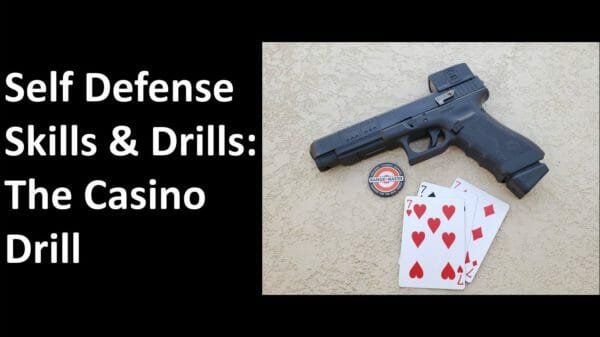
Oftentimes, the drills and courses of fire we use for training and practice have us stuck shooting silhouettes and bullseyes. While these certainly have significant training value, it can get a bit monotonous. Every now and then, it’s nice to change things up a little bit, both visually and practically. One of my favorite ways to do this is with the Casino Drill.
For years, I’d seen this target hanging at the local range, and I knew some ways to attack it, but I didn’t know its origins. That all changed when I took the first Rangemaster Instructor Development Course in 2019. Tom Givens is the originator of the Casino Drill and gives an excellent explanation in his classes as to how valuable this drill can be. In short, it allows us to train a variety of useful skills that may be required in a defensive encounter. It’s also pretty fun to shoot, making it an excellent option for those typically not interested in competition or training. So, what exactly is the Casino Drill?
Setting up the Drill
Setting up the Casino Drill is pretty simple. You need your pistol in either a concealment or duty holster, and the DT-2A target is placed at five yards. You’ll load seven rounds into three magazines for a total of 21 rounds, with one loaded into your pistol with a round chambered. Those using reduced-capacity guns such as revolvers or pocket pistols will need to incorporate additional reloads to make the round count. A shot timer is an important piece of equipment here to ensure that you get your raw time, as this is a scored and timed drill.
Scoring the Casino Drill
The par time on the Casino Drill is 21 seconds, anything over that is a failure of the drill. Rounds landing outside of the colored shapes add one second each to your total time. Shooting any of the shapes out of sequence adds one second to your total time for each instance. Firing too many or too few rounds into each shape also adds one second per instance to your total time. Ideally, you get all of your hits perfectly, while also staying under par.
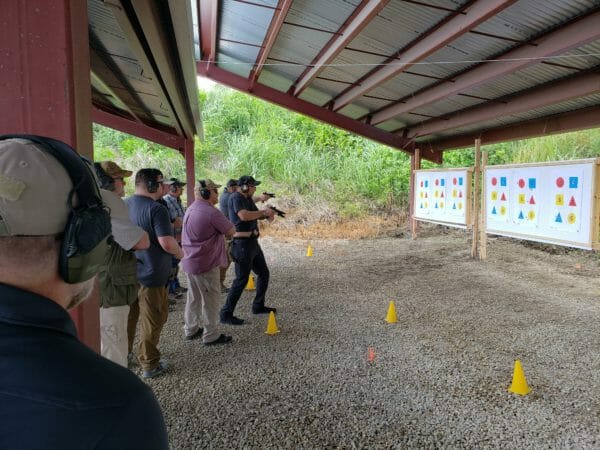
When shooting solo, under par and clean are the goal for a passing score. In a competitive environment, it is typically the final times that judge the winner, though throwing all accuracy out the window isn’t an excellent method of making time.
Firing the Drill
Start with your gun holstered, with a round in the chamber, and your hands relaxed at your side. On the beep, draw and fire the drill. The sequence is deceptively simple. The round counts coincide with the number on the target; number one gets one round, two gets two, so on and so forth, until you complete the drill. With seven-round magazines, you will have to reload twice, with slide lock reloads being mandatory as part of the Casino Drill.
Be sure to count your rounds fired, as there will be reloads within the same target on more than one occasion during the Casino Drill. Many shooters get caught up during the reloads, resulting in penalties for rounds fired out of sequence.
My Results on the Casino Drill
To date, I’ve fired the Casino Drill twice. Both instances were in classes, during the initial Rangemaster Instructor Course in 2019, and the Rangemaster Master Instructor Course in 2022. My first attempt resulted in a raw time of 18.11 plus a one-second penalty for a total of 19.11 seconds. This earned me 5th place in a class of 19 shooters, using a Glock 17 with a Trijicon RMR shot from AIWB concealment. Our top score completed his run in only 15.68 seconds.
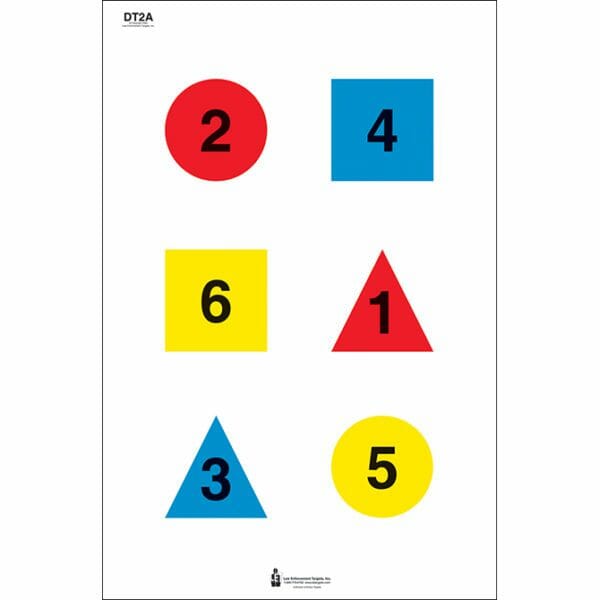
During the Master Instructor Course, I made slight improvements to my scores. My raw time here was 16.73, with a final time of 17.73 for a slight miss. This was shot using a Glock 19 with a Holosun 509T, also shot from AIWB concealment. This time around, our top shooter landed a 12.24 total time including his own one second penalty, for a very impressive run.
Final Thoughts on the Casino Drill
The Casino Drill is one that I rarely hear spoken to outside of Rangemaster circles, but I think is very valuable. It isn’t something I shoot often, but deserves a place in everyone’s roster of drills and skills tests. It works on target identification and transitions, maintaining speed with a solid level of accuracy, reload mechanics and more. Additionally, forcing multiple reloads adds task complexity, substantially increasing the challenge from just a straight shoot through each target.
Have you shot the Casino Drill before? If so, how did you stack up against myself and the other shooters listed here? If you haven’t, you can pick up the DT-2A target through Action Target and try it yourself.
About Dan Reedy
Dan is an Air Force veteran, avid shooter, and dog dad. With a passion for teaching, he holds instructor certifications from Rangemaster, Agile Training & Consulting, and the NRA. He has trained with Darryl Bolke, Mike Pannone, Craig Douglas, among several other instructors, amassing over 400 hours of professional instruction thus far. In his spare time you’ll find him teaching handgun, shotgun, and less lethal classes.
Dan’s work has been published by Primer Peak, and The Kommando Blog, and he has been featured as a guest on Primary & Secondary.

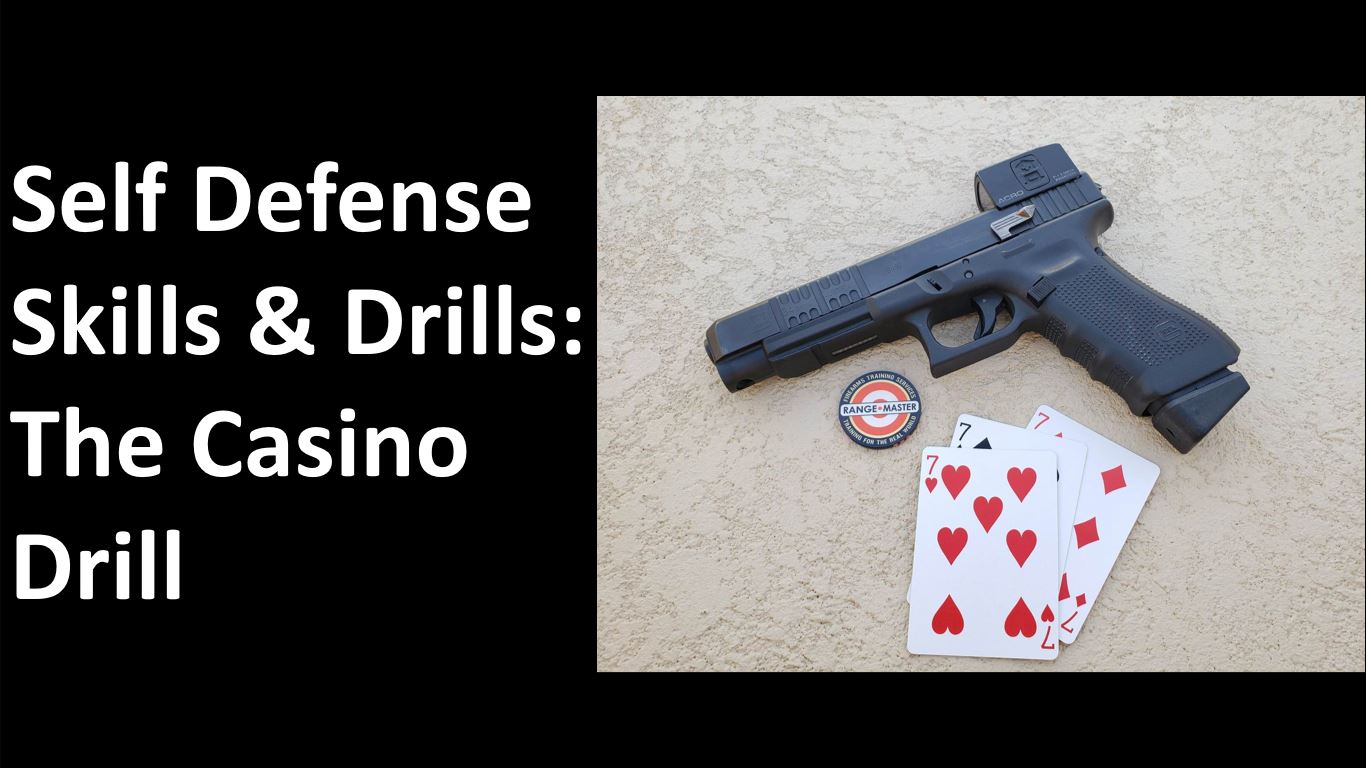
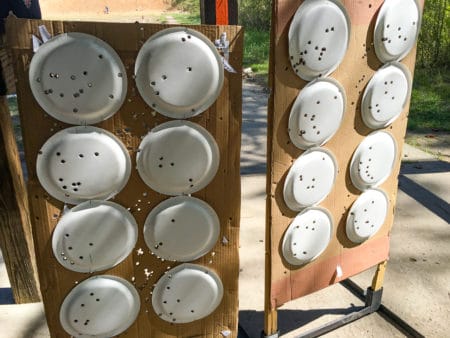
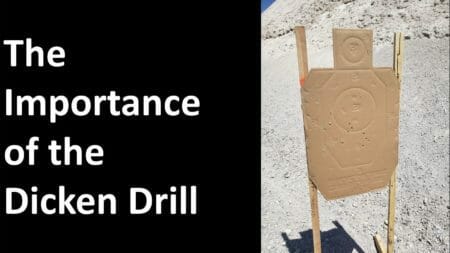
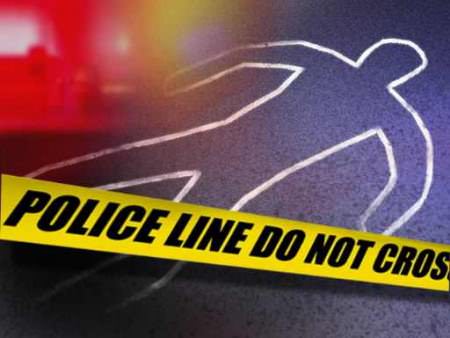

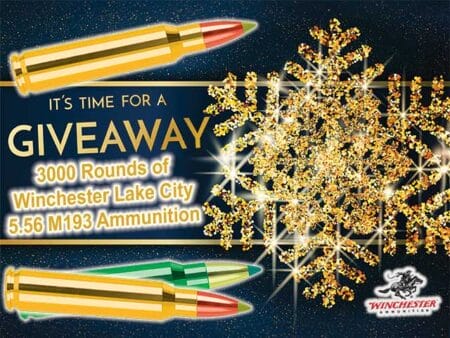
In ancient days, my team and I used to use this as a training drill when we did IADs (Immediate Action Drills) on the live fire ranges at Bragg and Lewis. We used CAR 15s, AKs and M4s later on. (Depended on mission we were prepping for) Slightly bigger targets and we moved in pairs, towards our objective, each pair having targets set up their lane. 5 overall we made ours slightly larger than the pistol targets shown. We would do 3 second rushes, targets were placed at roughly 25 meter marks. Did not use a time interval, each team… Read more »
Many defensive shooting skills can easily be acquired without expending scarce ammo and financial resources. Because unlike combat actions, game hunting and select law enforcement happenstances, defensive shooters are not required to be crack shots. Due to the fact that distant targets are not reasonable threats in the first place. And that defensive shootings are almost exclusively close quarter interactions. A technique easily mastered with a squirt gun on a refrigerator.
While extended ranges are outliers, they’re certainly not unheard of. Tom Givens has had students in shootings at 17 and 22 yards on the far end, Eli Dickens was in his at roughly 40 yards, Jack Wilson stopped his threat at approximately 15 yards. We have dozens of examples of other shooters needing to be stopped at further than bad breath distance. Close quarter skills are important, but fairly easy to become competent with. The more challenging shots require more effort, and also have the added benefit of improving your skill on difficult targets at closer distances. While there are… Read more »
As you said “more challenging shots” at close range may be necessary. One place I practice runs a course on which better shooters run slightly over 200s while I run more like 450-600s (so pretty much terrible). This course encompasses something like 40 targets with most requiring two hits – however one target must be hit 15 times – twice. One target which requires a single hit is a small head over the shoulder of a more standard torso/head target which is an innocent. Hitting this innocent is 150s penalty – so extremely critical to make the shot. Shooting this… Read more »
Warnings Unheeded by Andy Brown describes one of those ‘outliers’ you mention. A former airman, Dean Mellberg, with a grudge against the medical officers who recommended he be discharged from the Air Force. Mellberg showed up on the afternoon of 20 June 1994 and began shooting doctors, patients, anyone he came across at the Fairchild AFB hospital. The hospital was outside of the fenced base perimeter just a few miles west of Spokane, WA. Andy Brown was a member of the base security unit and was the nearest security policeman to the shooting. Andy was the first armed Air Force… Read more »
Correction. “Andy fired FOUR (4) shots upon arriving on site. The first two missed, the 3rd hit Mellberg in the shoulder, and the fourth shot with the Beretta dropped him with a bullet between the eyes. See History Link.org The article is titled “Gunman shoots and kills four people and wounds 22 at Fairchild Air Force Base Hospital on June 20, 1994″
“My first attempt resulted in a raw time of 18.11 plus a one-second penalty for a total of 19.11 seconds. This earned me 5th place in a class of 19 shooters”
Tooting one’s own horn, rather loudly. Another good example of Reedy’s suffering from Narcissism. Perhaps some day he might get better. Hopefully, before he gets trapped staring at his reflection for eternity.
If you read the entire article, you also would note that I provided examples of the top shooters in class, along with a slight personal improvement on my second run at the drill. Not much narcissism when you detail others besting your times. Good try though.
I encourage you to give the Casino Drill a shot to see how you stack up against the times of others. Maybe even jump into a class or a match with me so we can all get better together.